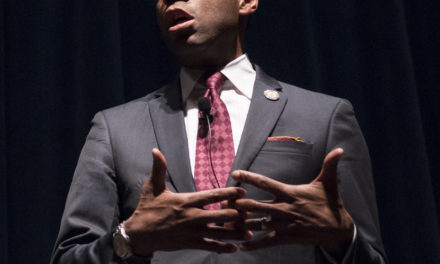LIVE UPDATES HERE
Emory University announced in a student-wide email on Wednesday that spring break will be extended to March 22 and all classes will transition to remote learning on March 23.
The email, sent on behalf of Interim Provost and Executive Vice President for Academic Affairs Jan Love, also states that all residential halls will close for the rest of the Spring semester and that students should remain at home following the break.
All students currently residing in Emory housing “should collect belongings and move out of their spaces between now and Sunday, March 22 at 5 p.m.,” the email reads.
Residence Life and Housing Operations will communicate specific instructions to residential students and students can expect to hear from faculty about the transition to remote learning.
The move comes in the wake of nationwide school cancellations in response to the rapidly evolving novel coronavirus (COVID-19) outbreak in the United States.
The email also recommends that all non-essential gatherings and events be canceled in order to reduce transmission of the virus. The University will provide additional guidance about planned events in the next 24-48 hours.
Emory will maintain its indefinite suspension of official travel to China, Iran, Italy and South Korea and will provide additional guidance about travel restrictions.
“Given the dynamic nature of the outbreak, we strongly recommend that all Emory faculty, students and staff reconsider domestic and international travel, especially for senior members of the community and individuals at increased risk for severe illness,” the email reads.
Love wrote that the University’s decision to transition to remote learning is consistent with Center for Disease Control and Prevention’s (CDC) guidelines and asked students to stay informed about new developments on the University’s coronavirus updates page.
“While we do not have all of the answers to the very many questions that will naturally follow from our decision to take these measures to protect our community and those in the greater Atlanta region, we pledge to keep you informed as the path forward becomes clear,” Love wrote.
As of March 12, there are no confirmed cases of coronavirus on Emory’s campus. There are currently six confirmed and 11 presumptive positive cases of cases of COVID-19 in Georgia, according to the Georgia Department of Public Health. On Tuesday, Fulton County canceled classes after a teacher tested presumptive positive for COVID-19 but will open again on friday, according to the Atlanta-Journal Constitution.
The decision to close residential facilities has caught the attention of low-income and international students, who have voiced concerns over their housing and the cost of rescheduling flights.
“I wouldn’t have anywhere to go, or the means to get there,” Adric Tenuta (21C) said. “Emory is the only institutionalized safety net that exists in my life at this point. If I’m not in class, I would be placed in further precarity.”
The shutdown also exacerbates economic conditions for student employees of the University.
“I work 40-hour weeks as an employee of the University — there’s so much more at stake than just housing,” Lydia Abedeen (21C) said in an interview with the Wheel. “I won’t be able to eat or earn any money to finish grad school apps due this Fall.”
Prior to the start of spring break, a campus-wide email from Interim Provost Jan Love’s office sent a travel advisory to all students, stating that students returning from Italy, Iran, South Korea, China and other CDC Level 3 classified countries must self-isolate themselves for two weeks before returning to campus. The email today echoed this directive.
On Feb. 29, the University canceled all study abroad programs in Italy, a country that now contains more than 10,000 cases of the virus.
Yesterday evening, President Trump suspended all travel from Europe for the next 30 days over mounting cases of the virus within the country, according to the New York Times.
Former Editor-in-Chief | Isaiah Poritz (he/him) (21C) is from Salt Lake City, Utah, and majored in political science.



